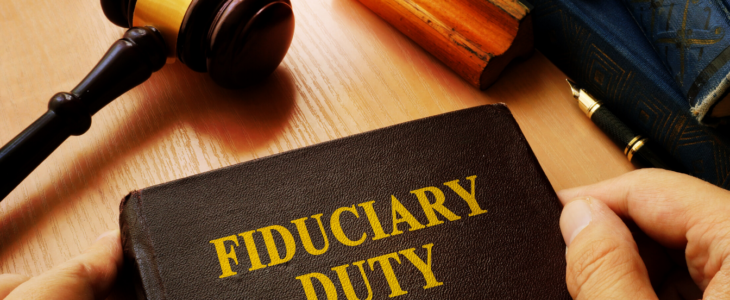A Matter of Trust
The appointment of a trustee to administer a trust is a significant decision. A trustee is selected because of their integrity, responsibility and impartiality. While it is often considered an honor, the fiduciary responsibilities this position carries are significant and should be fully understood.
Being a trustee means more than just administering and managing the funds of a trust. It also means adhering to the strict standards and unique responsibilities of the fiduciary relationship between trustee and beneficiary. If these responsibilities and duties are not met, the consequences can be serious. A trustee who does not fulfill his or her duties, intentionally or otherwise, may be liable for any decrease in value or loss of profits of the trust property.
This guide is designed to help familiarize you with the duties and responsibilities associated with being a trustee. Because this is a guide instead of an exhaustive list, please contact Boatman Ricci with any questions you may have.
A Sense of Your Duties
The Duty of Loyalty: The most fundamental duty of a trustee is the obligation to act solely in the beneficiaries’ best interest. This means that you must not only do what is best for the trust’s beneficiaries, but also do so without furthering your own interests unless the beneficiaries consent after full disclosure. As with the other trustee duties, if your non-compliance results in any losses or damages to the trust property, you and/or your co-trustees may be liable for any decrease in value.
The Duty of Prudent Investment: To comply with this duty, you must invest and manage trust assets as a prudent investor would, using reasonable care, skill and caution. Because the Rule requires you to exercise care and skill in managing and investing a trust’s assets, taking the easiest or quickest course to invest isn’t always the most prudent.
The Duty of Impartiality: This responsibility requires you to be impartial between classes of beneficiaries and within each class of beneficiaries, as long as this rule is consistent with the trust creator’s intent. This means that you cannot favor an income beneficiary over a remainder beneficiary, nor favor one income beneficiary over another unless it is consistent with the terms of the trust.
The Duty to Preserve Trust Assets: As a trustee, you are required to preserve the trust property. This duty requires you to pay taxes on the property, insure it against loss, protect it from theft, and maintain the property’s condition to ensure that a property’s value is not decreased.
The Duty to Segregate, Earmark, and Account: The duty to account for trust assets requires that you keep clear and accurate records of all transactions affecting the trust’s property. This responsibility includes keeping trust property separate from your own property, documenting trust property as such, and keeping accurate accounts and records of all trust-related transactions. Failure to segregate and earmark property can make accurate accounting impossible and can lead to suspicions of self-dealing which, in the absence of complete and accurate records, will likely be resolved against you.
Summing It Up
Being a trustee means adhering to specific standards, responsibilities, and expectations. It is important that you fully understand your duties and the role that you will play as the trustee of a trust. Boatman Ricci can help you determine the scope of your duties as trustee. Additionally, Boatman Ricci can serve as trustee of your estate ensuring your wishes are effectuated during every stage of the wealth transfer process.
Please contact Boatman Ricci at (239) 330-1494 to schedule an estate planning consultation.
* * * * * * * * * *
THIS BLOG IS INTENDED FOR GENERAL INFORMATION PURPOSES ONLY. IT DOES NOT CONSTITUTE LEGAL ADVICE. THE READER SHOULD CONSULT WITH KNOWLEDGEABLE LEGAL COUNSEL TO DETERMINE HOW APPLICABLE LAWS APPLY TO SPECIFIC FACTS AND SITUATIONS. BLOG POSTS ARE BASED ON THE MOST CURRENT INFORMATION AT THE TIME THEY ARE WRITTEN. SINCE IT IS POSSIBLE THAT THE LAWS OR OTHER CIRCUMSTANCES MAY HAVE CHANGED SINCE PUBLICATION, PLEASE CALL US TO DISCUSS ANY ACTION YOU MAY BE CONSIDERING AS A RESULT OF READING THIS BLOG.


